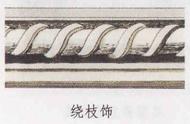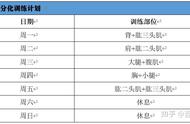从句一直深受高考的青睐,一直是很多同学做完型和阅读题型的老大难问题,虽然考的多,但总有同学被它弄得晕头转向。今天!田田就把从句所有类型和考点都梳理一遍,大家一定要认真看哦!

名词性从句精讲
从句是相对于主句而言的,即它是从属于某一个主句,而不能单独作一个句子。在英语中,主要有三大从句,即名词性从句(包括主语从句,宾语从句,表语从句,同位语从句)、形容词性从句(即定语从句)、副词性从句(即状语从句,包括时间、条件、结果、目的、原因、让步、地点、方式等)。
在句子中起名词作用的句子叫名词从句(Noun Clauses)。名词从句的功能相当于名词词组,它在复合句中能担任主语、宾语、表语、同位语等,因此根据它在句中不同的语法功能,名词从句又可分别称为主语从句、宾语从句、表语从句和同位语从句。引导名词性从句的连接词可分为三类:
(1)从属连接:that, whether, if(不充当从句的任何成分)
(2)连接代词:what, whatever, who, whoever, whom, whose, which.
(3)连接副词:when, where, how, why
1、主语从句
做句子主语的从句叫主语从句。主语从句通常由从属连词that,whether,if和连接代词what,who,which,whatever,whoever以及连接副词how,when,where,why等词引导。that在句中无词义,只起连接作用;连接代词和连接副词在句中既保留自己的疑问含义、又起连接作用,在从句中充当从句的成分。
1. that引导
That he is still alive is a wonder. 他还活着,真是奇迹。
That we shall be late is certain. 我们要晚了,这是确定无疑的。
That he should have ignored the working class was natural. 他忽视工人阶级是很自然的。
That she is still alive is a consolation. 她还活着是使人感到宽慰的。
That she became an artist may have been due to her father’s influence. 她成为画家可能是受她父亲的影响。
That you are coming to London is the best news I have heard this long time. 你将来伦敦是好久以来我听到的最好消息。
That she was chosen made a tremendous stir in her village. 她被挑选上,在她村子里引起很大轰动。
2. whether引导
Whether it will do us harm remains to be seen. 是否对我们有害还要看一看。
Whether they would support us was a problem. 他们是否会支持我们还是一个问题。
3. 连接代词引导
Whoever is top from wins the game when two matched players meet. 两强相争勇者胜。
Whichever (of you) comes in first will receive a prize. 无论(你们)谁先到都可以得奖。
Whichever you want is yours. 你要哪个,哪个就是你的。
4. 连接副词引导
When we arrive doesn’t matter. 什么时候到没有关系。
How this happended is not clear to anyone. 这件事怎样发生的,谁也不清楚。
How many people we are to invite is still a question. 邀请多少人还是一个问题。
5. 关系代词型what引导
What I want to know is this. 我想知道的就是这一点。
What’s done is done. 事已成定局。
What he says is not important. 他说的话并不重要。
What I am telling you is mere impressions. 我和你说的都不过是一些印象而已。
What you need is a good-sized canvas bag. 你需要的是一个比较大的帆布袋。
6.主语从句与形式主语it
有时为了考虑句子平衡,通常在主语从句处使用形式主语it,而将真正的主语从句移至句末。这分三种情况:
(1) 对于以连词that引导的主语从句,通常用形式主语代主语从句:
It’s a pity that he didn’t come. 很遗憾他没来。
It is important that he should know about this. 他必须知道此事。
It’s vital that we be present. 我们出席是至关重要的。
It was intended that you be the candidate. 大家的意图是让你当候选人。
It is appropriate that this tax be abolished. 废除这个税是恰当的。
It’s unfair that so many people should lose their jobs. 竟有这么多人失业这是不公平的。
It’s amazing that she should have said nothing about it. 她竟未谈及此事令人惊讶。
It’s unthinkable that they should deny my request. 他们竟然拒绝我的请求,这是不可思议的。
That they should refuse to sign the petition required great courage. 他们拒绝在请愿书上签字这是需要很大勇气的。
(2) 对于以连接代词(副词)引导的主语从句,可以使用形式主语代主语从句,也可直接在句首使用主语从句:
Whether they would support us was a problem. 他们是否会支持我们还是一个问题。
It was a problem whether they would support us. 他们是否会支持我们还是一个问题。
It remains to be seen whether it will do us harm or good. 它对我们是利是害,还得看看再说。
(3) 对关系代词型what引导的主语从句,通常直接将主语从句放在句首。如:
What we need is money. 我们需要的是钱。
What I want to know is this. 我想知道的就是这一点。
★如果句子是疑问句,则必须用带形式主语it的结构:
Is it true that he is the girl’s father? 他是那女孩的父亲,是真的吗?
How is it that you are late again? 你怎么又迟到了?
7.连词that的省略问题
引导主语从句的连词that 有时可省,有时不能省,其原则是:
若that引导的主语从句直接位于句首,则that不能省略;若that引导的主语从句位于句末,而在句首使用了形式主语it,则that可以省略。
如:That you didn’t go to the talk was a pity. 很遗憾你没去听报告。(that不可省)
It was a pity (that) you didn’t go to the talk. 很遗憾你没去听报告。(that可省)
8. 另外注意在主语从句中用来表示必须、理应如此、建议、要求等语气时,谓语动词要用虚拟语气“(should) do”
常用的句型有:
It is necessary (important, natural, strange, etc.) that …
It is suggested (requested, proposed, desired, etc.) that…
2、宾语从句
在复合句中用作宾语的从句叫宾语从句。引导宾语从句的连接词与引导主语从句连接词大致一样。
1.宾语从句中引导词用法
在复合句中做主句的宾语,引导词有:
连词:that (that 常可省略),whether, if
代词:who, whose, what ,which
副词:when ,where, how, why 等。
①连词:
He told me (that he would) go to the college the next year 他告诉我他明年上大学。
I don’t know if there will be a bus any more. 我不知道是否还会有公交车。
Nobody knew whether he could pass the exam. 没有人知道他是否会通过考试。
❶that引导
(在非正式场合that可以省略)
★可跟that引导的从句做宾语的动词有:say, think, insist, wish, hope, demand, imagine, wonder, know, suppose, see, believe, agree, admit, deny, expect, explain, order, command, feel, dream, suggest, hear, mean, notice, prefer, request, require, propose, declare, report等。
如:The boy believes that he will travel through space to other planets.
★宾语从句的否定转移
当主句谓语动词是 think, believe, suppose, expect 等词,而宾语从句的意思是否定时,常把否定转移至主句表示。并且主句的主语是第一人称而且为一般现在时,从句的否定词一般要转移到主句上来,其反义疑问句一般与宾语从句一致。
I don’t think it is right for him to treat you like that.
I don’t believe that man is killed by Jim ,is he?
I expect our English teacher will be back this weekend, won't she/he?
We suppose you have finished the project, haven't you?
如果宾语从句中有某个含有否定意义的形容词或副词(不包含带有否定前缀的词,如:unhappy,unfair,dislike等),其反义疑问句要用肯定形式。
We find that he never listens to the teacher carefully, does he?
我们发现他从不仔细听老师讲课,是不是?
★当主句的主语是第二、三人称时,其反义疑问句一般与主句保持一致。
Your sister supposes she needs no help, doesn't she?
You thought they could have completed the project, didn't you?
They don't believe she's an engineer, do they?
She doesn't expect that we are coming so soon, does she?
★在以下情况中that不能省略
(1)当句中的动词后接多于两个由that引导的宾语从句时,第一个that可省,但后面的that不可省。
I believe(that)you have done your best and that things will get better.
(2)当主句的谓语动词与that宾语从句之间有插入语时,that一般不可省。
Just then I noticed, for the first time, that our master was wearing his fine green coat and his black silk cap.
(3)当that从句是双宾语中的直接宾语时,that不可省。
I can’t tell him that his mother died.
(4)当it作形式宾语时
例句:She made it clear that she had nothing to do with him.
许多带复合宾语的句子,that引导的宾语从句经常移到句子后部,而用it作形式宾语。
(5)当宾语从句前置时 That our team will win,I believe.
(6)当that作learn, suggest ,explain ,agree ,wonder ,prove ,mean, state ,feel ,hold等动词的宾语时;
❷由whether,if
当由一般疑问句充当宾语从句时,用if或whether引导,意为“是否”。
如:I don't know if /whether he still lives here after so many years.我不知道这么多年后他是否还住在这儿。
但在下列情况下只能用whether,不能用if:
①在具有选择意义,又有or或or not时,尤其是直接与or not连用时,往往用whether(if…or not也可以使用)。
如:Let me know whether /if he will come or not.
(=Let me know whether or not he will come)让我知道他是否能来。
I don't know whether /if he does any washing or not.
(=I don't know whether or not he does any washing.)我不知道他洗不洗衣服。
I wonder whether we stay or whether wego.我不知道我们是去还是留。
②在介词之后用whether。
如:I'm interested in whether he likes English.我关心的是他是否喜欢英语。
We're thinking about whether we can finish the work on time.我们正在考虑是否能按时完成这项工作。
③在不定式前用whether。
如:He hasn't decided whether to visit the old man.他尚未决定是否拜访那位老人。
He hasn't decided whether to go by bus or by train.他还未决定是乘公共汽车去还是坐火车去。
④whether置于句首时,不能换用if。
如:Whether this is true or not,I can't say.这是否是真的我说不上来。
⑤引导主语从句和表语从句时宜用whether。
如:Whether she will come or not is still a question.她是否能来还是个问题。
⑥若用if会引起歧义时,则用whether。
如:Please let me know if you like the book.
可理解为:If you like the book,please let me know.你如果喜欢这本书,请告诉我。
❸只能用if不能用whether引导
(1)if引导条件状语从句,意为“如果”
The students will go on a picnic if it is sunny.
(2)if引导否定概念的宾语从句时
He asked if I didn’t come to school yesterday.
(3)引导状语从句even if(即使)和as if(好像)时
He talks as if he has known all about it.
②连接代词和连接副词引导的宾语从句
这样的宾语从句实际上是由特殊疑问句变化而来的,宾语从句要用陈述句语序。用于这种结构的动词常常是:see, say, tell, ask, answer, know, decide, show, find out, imagine, suggest, doubt, wonder, discover, understand, inform, advise等。
❶连接代词
Who ,whom ,whose ,which ,what,在句中担任主语、宾语、定语或者表语。连接代词一般指疑问,但what, whatever除了指疑问外,也可以指陈述.
Do you know who has won Red Alert game?
你知道是谁赢得了红色警报的游戏么?
The book will show you what the best CEOs should know.
这本书会告诉你最好的执行总裁该了解什么.
❷连接副词
When ,where ,why ,how,在句中担任状语的成分。
He didn’t tell me when we should meet again. 他没有告诉我什么时候我们能再见面。
Could you please tell me how you use the new panel?
你能告诉我怎么用这个新的操作盘吗?
None of us knows where these new parts can be bought.
没有人知道这些的新的零件能在哪里买到。
2.宾语从句的语序
宾语从句的语序是陈述句语序即:连接代词/副词 主语 谓语 其他成分。
I don’t know what they are looking for.
Could you tell me when the train will leave?
3.宾语从句的时态
(1)时态:主句是一般现在时,从句根据实际情况使用任何时态。
例句:The headmaster hopes everything goes well.
(2)主句是过去时态,从句须用过去时态的某种形式。
例句:She was sorry that she hadn’t finished her work on time.
(3)当宾语从句表示的是一个客观真理或者事实时,即使主句是过去时,从句也用一般现在时态。
例句:The teacher told his class that light travels faster than sound.
★注意:运用虚拟语气的情况在表示“建议 suggest 、advise、propose; 要求demand 、desire、request; 决定 decide; 命令 order、command、require; 坚决主张 insist”等动词后跟宾语从句,用(should) v.(虚拟语气)
如:I suggested that you(should)study hard.
He ordered that we should go out at once.
虚拟语气用在宾语从句中:动词 wish, suggest ,order ,insist , propose,等词后面的宾语从句表示的是一种虚拟语气,宾语从句中的动词动作表示的只是一种愿望、要求。
如:I wish she would be on my side. 我希望她能站在我一边。
I wish I could help him. 我希望我能帮助他。
He insisted that all of us should be there on time by any means. 他坚持要我们大家想尽办法按时去那儿。
动词 demand, suggest, order, insist, propose 后面的从句中,"should" 可以省略。
如:The teacher suggested that we (should) clean the blackboard after class. 老师建议我们课后把黑板擦了。
He ordered that the students wash the clothes every week by themselves. 他要求学生每周都要自己洗衣服。
4.简化宾语从句的方法
把含有宾语从句的复合句转化为简单句,使其与原句意思相同(或相近)的试题。下面就介绍几种常用的简化宾语从句的方法:
(1)当主句谓语动词是hope, decide, wish, choose, agree, promise等,且宾语从句的主语与主句主语一致时,宾语从句可简化为不定式结构。例如:
Li Ming hopes he will be back very soon.
→Li Ming hopes to be back very soon.
We decided that we would help him.
→We decided to help him.
(2)当主句谓语动词是know, learn, remember, forget, tell等动词,且主句主语与从句主语一致时,宾语从句可简化为“疑问词 不定式”结构。
例如:
She has forgotten how she can open the window.
→She has forgotten how to open the window.
★注:当主句谓语动词是tell, ask, show, teach等动词,且后带双宾语,从句主语和间接宾语一致时,宾语从句可简化为“疑问词 不定式”结构。例如:
Could you tell me how I can get to the station?
→Could you tell me how to get to the station?
(3)当主句的谓语动词是order(命令),require(需要)等时,如果主句和从句的主语不一致,宾语从句可简化为“名词(代词) 不定式”结构。例如:
The headmaster ordered that we should start at once.
→The headmaster ordered us to start at once.
(4)某些动词后的宾语从句,可以用介词加动名词(短语)等其他形式简化。例如:
He insisted that he should go with us.
→He insisted on going with us.
The poor boy doesn’t know when and where he was born.
→The poor boy doesn’t know the time and the place of his birth.
(5)某些动词后面的宾语从句可转化为“宾语 V-ing形式(作宾语补足语)”结构。例如:
Liu Ping found that there was a wallet lying on the ground.
→ Liu Ping found a wallet lying on the ground.
(6)动词seem后的宾语从句,也可以用不定式(短语)来简化,但句型需要进行适当的变化。例如:
It seemed that the boys were going to win.
→The boys seemed to win.
★除上述方法外,还有一些特殊句式的转化。
例如:
I found that it was difficult to learn English well.
→I found it difficult to learn English well.
Soon we found that the ground was covered with thick snow.
→Soon we found the ground covered with thick snow.
They found that the box was very heavy.
→They found the box very heavy.
3、表语从句
表语:说明主语的性质、特征、状态或身份,说明主语是什么或者怎么样。总之表语是对主语的解释和说明,是主语具体化,并且常与连系动词一起使用。
表语从句:在复合句中作表语的从句, 就叫做表语从句。表语从句一般放在系动词之后,结构是“主语 系动词 表语从句”。
★连系动词:be动词、表示持续的系动词(keep, remain, stay)、感官动词feel(摸起来,感觉) , smell(闻起来) , sound(听起来) , taste(尝起来,吃起来) 等、表示变化的系动词(become, grow, turn, fall, get, go,)、表终止的系动词prove, turn out(结果是,证明是)、seem, appear(看起来……)
连系动词通常不用于被动语态和进行时态中。
He has become what he wanted to be ten years ago.
他已经成为了他10年前想成为的样子。
His suggestion is that we should stay calm.
他的建议是,我们应该保持冷静。
1.表语从句的引导词
①从属连词
that / whether /as if /as though/as/because
(1) that引导表语从句本身没有词义,在句中只起连接作用,不充当句子成分,一般不能省略。
That fact is that more than seventy percent of the earth’s surface is covered by water.
连接词that一般不能省略,但当主句中含动词do的某种形式时,that可以省略。
What I want to do is (that) I can go up to him and thank him. 我想做的事是走到身边去感谢他。
(2) whether引导表语从句表示“是否”,但不充当句子的成分。
The question is whether we can finish our work by tomorrow evening.
if 与whether均意为“是否”,但引导表语从句时,只能用whether, 不能用if。
(3)as if/though“好像”,引导表语从句时要注意语态。
如果句中的情况与事实不相符,从句多用虚拟语气。如果从句表示与现在事实相反,谓语动词用一般过去式;如果从句表示与过去事实相反时,谓语动词要用“had 过去分词 ”,如果从句表示将来的可能性不大,用would (might ,could ) 动词原形。
Li Lei is now in a new jacket. He looks as if he were an American boy. (现在事实相反)
The girl is giving us a vivid description of the moon. It seems as if she had been to the moon many times. (与过去事实相反)
It looks as if it might rain. (与将来事实相反)
但是,如果as if/though引导的表语从句所表示的与事实相符,从句则用陈述语气。
The clouds are gathering. It looks as if is going to rain.
(4) as引导表语从句
He looked just as he had looked ten years before.
他看起来还与十年前一样。
(5) because引导表语从句
常用结构:This/That/It is/was because...
That is because I don’t like Chinese.
②连接代词
who/whom/whose/what/which/whoever/whatever/whichever/whomever,在表语从句中做主语、宾语、表语和定语。
Tom is no longer what he used to be. (what做表语)
The problem is who is fit for this job. (who做主语)
This is what I want to tell you. (what做宾语)
The problem is whose work is the best. (whose做定语)
③连接副词
when/where/how/why,在表语从句中做状语。
The question is how he did it. 问题是他是如何做此事的。
The question is where we can live.问题是我们能住在哪儿。
2.特例强调
(1)reason做主语或主语中包含事件的起因时,后面的表语从句表示原因时要用that来引导,而不用because;why引导主语从句做主语时,表语从句用that引导,不用because。
The reason is that he got up late.
Why he is late is that he got up late.
(2)that is why/because
①That is why ...是常用句型,其中why引导的从句在句中作表语,该句型通常用于针对前面已经说过的原因进行总结。That is the reason why ...与That is why ...是同义的,“这就是……的原因/因此……”,但是从语法结构上讲That is the reason why ...中的why引导的是一个定语从句。
That is why she failed to pass the exam.
那就是她考试不及格的原因。(why 在表语从句中充当原因状语)
That is the reason why she failed to pass the exam.
那就是她考试不及格的原因。(why 在定语从句中充当原因状语)
②That is because...句型中从属连词because引导的名词性从句在此作表语,这也是个常用句型,意为“这就是因为……”。
That is because I got up late. 这是因为我起床迟了。
③“That is because...”与“That is why...”之间的不同在于“That is because...”指原因或理由, “That is why...”则指由于各种原因所造成的后果。
I was angry. That was because he didn’t understand me.我生气是因为他不理解我。(表语从句强调原因)
That’s why he got fired from that firm.那正是他被公司解雇的原因。(表语从句强调结果)
(3)The reason (why.../for...)is /was that... “...的原因是...”
The reason for his absence is that he got up late.
The reason why he is absent is that he got up late.
他缺席的原因是他起床迟了。
(4)使用虚拟语气的表语从句
在表示建议、劝告、命令、计划含义的名词后的表语从句,谓语动词需用“should 动词原形”表示虚拟语气,should可省略。常见的词有:advice,suggestion,order,request,proposal,plan,idea等。
My suggestion is that we (should) start early tomorrow.我的建议是我们明天一早就出发。
4、同位语从句
在复合句中充当同位语的名词性从句称为同位语从句。一个名词(或其它形式)对另一个名词或代词进行补充说明,这个名词(或其它形式)就是同位语。
1.用法
同位语从句一般跟在某些名词后面,用以说明该名词表示的具体内容。
I heard the news that our team had won.我听到了我们队获胜的消息。
①可以跟同位语从句的抽象名词通常有news,idea,fact,promise,question,doubt,thought,hope,message,suggestion,word(消息),possibility等。
I’ve come from Mr. Wang with a message that he won’t be able to see you this afternoon.
我从王先生那里来,他让我告诉你他今天下午不能来看你了。
②在某些名词表“建议,命令,要求等”(如demand, wish, suggestion, resolution等)后面的同位语从句要用虚拟语气 (即should 动词原形;should可省)。
There was a suggestion that Brown should be dropped from the team.
有一项建议是布朗应该离队。
③同位语从句前名词的数:同位语从句前的名词通常用单数形式,并且往往带有限定词(word除外)加以修饰。
Where did you get the idea that I could not come?你在哪儿听说我不能来?
2.连词
英语中引导同位语从句的词通有that,whether,连接代词what,who,连接副词how, when, where等。(注:if, which 不能引导同位语从句。)
(1)连词that引导同位语从句(注:引导同位语从句的that不能省略)
The idea that you can do this work well without thinking is quite wrong.
你认为不动脑筋就能做好这件工作的想法是完全错误的。(作idea的同位语)
【注意】引导同位语从句的连词that通常不省略。
(2)连词whether引导同位语从句(注:if不能引导同位语从句)
The question whether we should call in a specialist was answered by the family doctor.
我们是否请专家由家庭医生来定。
He must answer the question whether he agrees to it or not.
他必须回答他是否同意这样一个问题。
(3)其它引导词引导的同位语从句
A.连接代词
what, who, whom, whose引导同位语从句
I have no idea what size shoes she wears.我不知道她穿几号的鞋。(what作定语)
The question who will take his place is still not clear.(who作主语)
B.连接副词
when, where, how, why 引导同位语从句
We haven’t yet settled the question where we are going to spend our summer vacation.
到哪儿去度暑假,这个问题我们还没有决定。
l have no idea when he will be back.我不知道他什么时候回来。
My question how I shall get in touch with him has not been answered.
3.分隔式同位语从句
有时同位语从句可以不紧跟在说明的名词后面,而被别的词隔开。在语法上叫做分隔式同位语从句。
The thought came to him that maybe the enemy had fled the city.
他突然想起可能敌人已经逃出城了。
Several years later,word came that Napoleon himself was coming to inspect them. 几年以后,有消息传来说拿破仑要亲自视察他们。
4.定语从句与同位语从句
同位语从句是用于说明所修饰名词的具体内容的,它与被修饰词语通常可以划等号;而定语从句是限制所修饰名词的,它的作用是将所修饰的名词与其他类似的东西区别开来。
同位语从句中的引导词that不做成分,而定语从句中的引导词that做成分。
定语从句中,关系代词做宾语可以省略;同位语从句的引导词不可以省略。
We are glad at the news that he will come. 听到他要来这个消息我们很高兴。
We are glad at the news that he told us. 听到他告诉我们的这个消息我们很高兴。
形容词性从句
定语从句:在复合句中, 修饰名词或代词的从句叫做定语从句。被定语从句所修饰的词叫先行词。引导定语从句的词叫关系词。
关系词包括关系代词who(宾格whom,所有格whose),that, which 和关系副词where, when, why 等。
The boy who is wearing a black coat bought a dictionary yesterday.
The noodles that(which) my mother cooked were delicious.
The school where I learned judo was very large.
I remember the day when our band was formed.
I don’t know the reason why she got so angry this morning.
1.定语从句的种类
定语从句可以分为限定性定语从句和非限定性定语从句。
(1)限定性定语从句:它是先行词在意义上不可缺少的定语,如果去掉,主句的意思就不完整或失去意义。这种从句与主句的关系十分密切,书写时不可用逗号分开。如果关系代词在限定性定语从句中作宾语,关系代词通常可以省略。
Do you know the girl who just came in?
Shanghai is a city(that)I’ve always wanted to visit.
Her sister married a man (who/whom/that) she met on a plane.
The time when I first met Mr. White was a very difficult period of my life.
(2)非限定性定语从句:它只是对先行词作附加补充说明,如果去掉,主句的意思仍然清楚完整。这种从句与主句的关系不是很密切,书写时往往用逗号分开。非限定性定语从句一般不用that 引导,而且不可以省略关系词。
The old woman, who lives on her own, has a cat for company.
Lori is going to marry Mark, whom she does not love.
Beijing, which is the capital city of China, is a very beautiful city.
2.关系代词的用法
在定语从句中, 关系代词起着连接主句与从句,指代先行词和在从句中作句子成分的三重作用。关系代词的选用取决于主句中的先行词以及关系代词在从句中作何种成分。
❶关系代词who, whom 的用法
1) who 可以代替人(即它的先行词必须是人),在从句中担任主语,往往也可以代替在从句中担任宾格的whom,但它的前面不能有介词,如果带介词则必须用宾格whom,即“介词 whom”.
如:Jonny is a person who always has novel ideas.
The girl who the first prize in the contest is from Zhejiang.
The person who/whom you just talked to is Mr. Depp.
---The person to whom you just talked is Mr. Depp. (介词to提到定语从句前,只能用whom.)
We’ll go to the hospital to see the patients, most of whom are children.
(whom 前常用表示数量的词none/neither/both/each/all of…)
2)在定语从句中,who, that 指人时可以通用,但在下列情况下用who,而不用that.
A) 先行词是one, ones, anyone 时,宜用who.
One who has nothing to fear for oneself dares to tell the truth.
The ones who flatter me don’t please me.
Anyone who laughs last laughs best.
Anyone who fails to finish the task given should be criticized.
B) 先行词为those 时,宜用who.
Those who want to go to the Great Wall sign up here.
No words are strong enough to express our thanks to those who worked hard to rescue survivors in the earthquake.
C) 当先行词有较长的后置定语时,宜用who。
I met a girl in the street yesterday who grew up in Yunnan province.
D) 一个句子中带有两个定语从句时,其中一个定语从句的关系代词时that, 另一个宜用who.
如:The boy that you met last night is the group leader who studies very hard.
E) 在there be 开头 的句子中,事宜用who.
There is a young man who wants to see your father.
There are many old men who are against this plan.
❷关系代词whose 的用法
关系代词whose 是关系代词who 的所有格形式,它 既可以代人,也可以代物。当whose 代物时,相当于of which. Whose 引导的定语从句既可以是限定性定语从句,也可以是非限定性定语从句。
Do you know Peter whose father happens to be working in your company?
The tourist wanted to book a room whose window faces south.
=The tourist wanted to book a room the window of which faces south.
=The tourist wanted to book a room. The room’s window faces south.
We went to see our teacher Miss Styles, whose husband lost his life in the earthquake.
Xi’an, whose walls remain as good as before, is one of the few cities with city walls.
❸关系代词that, which 的用法
1)在限定性定语从句中指代物时,which 和that 一般可通用。
The new house that/which I has just bought is about six miles away.
They planted some trees that /which didn’t need much water.
(2) 限定性定语从句中只用that 而不用which 的情况。
A)先行词有形容词最高级修饰时
This is the best way that has been used against pollution.
Polly is the most direct young woman that I have ever come across.
B) 先行词有序数词修饰时
This is the third time that they have met.
The very first time that Lester saw the film, he made up his mind to become a doctor.
C)主句已有疑问词who 或which 时
Which of the car s that are in front of the hotel belongs to you?
Who is the man that is sitting by the lake?
D) 先行词既有人又有物时
He talked about the schools and teachers that he had visited.
The bike and his rider that had run over an old man were taken to the police station.
E) 先行词为all, much, few, little, something, everything, anything, nothing, none 等不定代词时
It’s easy to do the repair. All that you need is a hammer and some nails.
We haven’t got much that we can offer you.
I’d like to tell you something that will make you surprised.
F) 先行词前面有the very, the only, the same, any, few, little, no, all, one of 等词修饰时
This is the very room that I slept in that evening.
The only thing that we can do is to give you some money.
Li Ming is the only one that wants to be a teacher.
G) 有两个定语从句,其中一个关系代词以用which,另一个宜用that
Edison built up a factory which produced things that had never been seen before.
(3) 只用which 而不用that 的情况
A) 引导非限定定语从句时
The fish, which I bought this morning, is very fresh.
My house, which I bought two years ago, has got a lovely garden.
Jim passed the driving test, which surprised everybody in the office.
Helen was much kinder to her youngest son than to others, which, of course, made the others envy him.
The factory produces half a million pairs of shoes every year, most of which are sold abroad.
(which 前常用none/neither/most/both/each/all/a little of等词修饰)
B)在限定性定语从句中,关系代词前有介词时
I was put in a position in which I had to accept I was less important.
This is the hotel in which you will stay.= That’s the hotel (which/that) you will stay in.
(此句中,如果介词in 放在句子的后面,那么关系代词既可用which,也可用that,还可省略。
C)在限定性定语从句中,如果有两个定语从句时,其中一句的关系代词that 时, 另一个用which.
Let me show you the novel that I borrowed from the library which was newly open to us.
3.关系副词的用法
where, when, why: 关系副词和关系代词一样,具有数重作用。连接主句与从句,指代先行词,在从句中作句子成分。由于关系副词在从句中均做状语,所以具体选用什么关系副词,主要取决于关系副词在从句中充当什么类型的状语。
❶关系副词where 的用法
有关系副词where引导的定语从句,其先行词主要是表示地点的名词,如building, city, room等,where 在从句中作地点状语。
The hotel where we stayed was very clean.= The hotel (that/which) we stayed at was very clean.
=The hotel at which we stayed was very clean.
I got to the stage where I wasn’t coping any more.
=I got to the stage (which/that) I wasn’t coping with any more.
= I got to the stage with which I wasn’t coping any more.
❷关系副词when 的用法
有when引导的定语从句,其先行词主要是表示时间的名词,如 time, day, date,等,when 在从句中作时间状语。
I’ll never forget the time when we first met in London.
=I’ll never forget the time during which we first met in London.
The date (when/that) he joined the ANC Youth League was August 5th.(如果按语法来讲,上例中的定语从句只能用when引导,但在口语中,常用that 代替 when, 而且还可以省略。)
❸关系副词why 的用法
由why 引导的定语从句,常用在先行词reason 后面,why 在句中作原因状语。
The reason why I got a job was that I worked hard.
=The reason (that)/for which I got a job was that I worked hard.
The reason why she was late was that she missed her plane.
=The reason (that)/for which she was late was that she missed her plane.
Amy didn’t get a pay rise, but this wasn’t the main reason why she left.
=Amy didn’t get a pay rise, but this wasn’t the main reason (that)/for which she left.
(一般说来,在定语从句中,只要先行词是the reason ,它的关系副词就是why,但在口语中,和when 一样,why 常被that 代替,也可省略。)
重点比较: 带reason 的定语从句与表语从句的常用句型:
定语从句 The reason why/that…; …the reason why/that…
表语从句 The reason is that…(不能用why,否则就重复了)
I know the reason why she studies so well.
The reason is that he is always careless in his work.
4.关系代词和关系副词引导的定语从句的区别
对于同一个先行词,正确区分关系代词和关系副词,关键是要弄清楚它们在定语从句中担任什么成分,而不仅仅取决于先行词是什么。如果关系词在从句中制作主语或宾语,就是关系代词;如果关系词在定语从句中做状语,就是关系副词,当然上面提到的口语用法除外。
5.注意事项
(1)定语从句中的主谓一致
A)定语从句中的关系代词作主语时,从句谓语的人称,数要与先行词一致。
Is he the man who/that wants to see you?
B) as/which 做主语引导非限定性从句指全句时,从句谓语用第三人称。
Liquid water changes to vapor, which is called evaporation.
As is usual, Hans came to school late this morning.
C) 先行词为“one of 复数名词“时,关系代词为从句主语,谓语用复数。
Freddy is one of the students who want to be diplomats in our class.
D) 先行词为“the only one of the 复数名词“时,关系代词为从句主语,谓语用单数。
He is the only one of the students who has been a winner of scholarship for three years.
(2)what, how 不能用于定语从句中.
A) what不能用作关系代词来引导定语从句,但是what 引导的宾语从句可以与that 引导的定语从句进行互换。
Tell me anything (that) you know. = Tell me what you know.
Tell me anything what you know. ( wrong)
B) how 不能用作关系副词来引导定语从句,修饰表示方式的way 的定语从句用which 来引导,也可用that 或省略。
This is the way (in which/that) I worked out the problem.
This is how I worked out the problem.
(3)关系代词和关系副词的省略
关系代词的省略:
A) 非限定性定语从句中关系代词不可以省略。
Jan Hasek , who was my former English teacher, retired last year.
B) 在限定性定语从句中,关系代词用作动词宾语时可省略。
Sorry, forgot to bring the magazine (which/that) you want.
C) 关系代词作介词宾语时,如果介词出现在关系代词前,关系代词不可以省略;如果介词位于定语从句句末,关系代词可以省略。
This is the government building in which my father works.
This is the government (which/that) my father works in.
D)there be 句型之后的定语从句中,做主语或宾语的关系代词常客省略。
There’s nothing (that) I can do about it.
6.定语从句和同位语的区别
A) 根据that 在从句中是否做成分来判定。引导定语从句的that 是关系代词,在句中充当主语或宾语,是对先行词的一个说明。引导同位语从句的that是连接词,不充当任何成分,不能省略,也不能用which 代替。同位语从句用来说明名词或代词表示的具体内容。
The news that you told me last week is not true.
(that 引导的定语从句,说明是哪一个news, that 在从句中充当told 的宾语。)
The news that the leader will come here is not true.
(that 引导的同位语从句,说明news 的具体内容,that 在从句中不担任任何成分)
B)根据意思来判断
在关系代词前加is 后,如果句子成立就是同位语从句,否则就不是。
The news that you told me is not true.
---The news is that you told me last week. (不成立;不是同位语从句。)
The news that the leader will come here is not true.
---The news is that the leader will come here. (成立;是同位语从句)
























